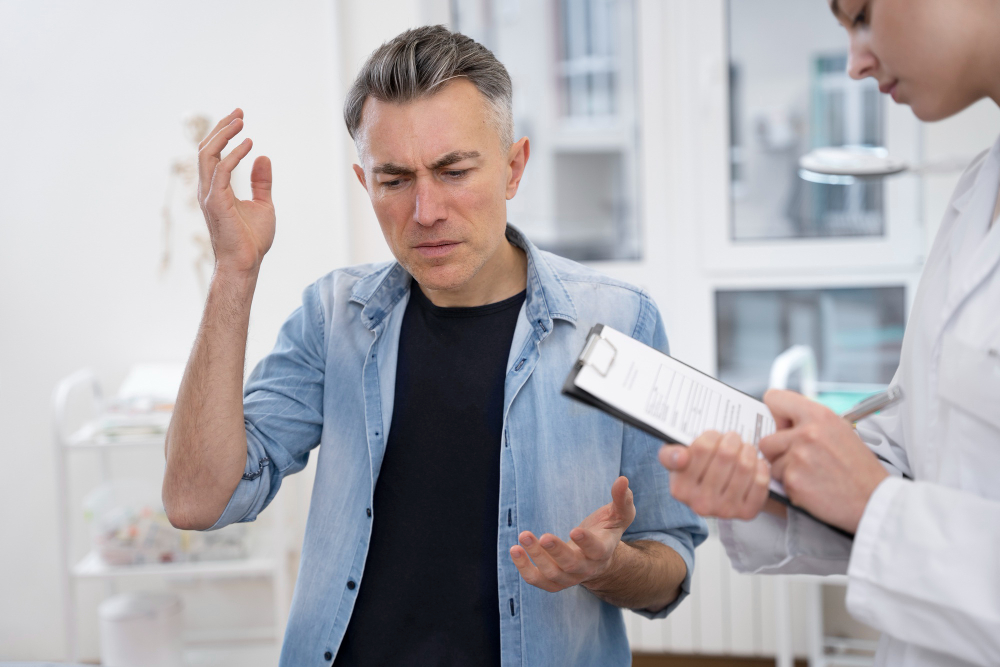Menstrual migraines are a common and often debilitating condition experienced by many women. These migraines are closely linked to hormonal changes during the menstrual cycle, particularly the drop in oestrogen levels. If you’re suffering from menstrual migraines, it’s essential to understand the causes, symptoms, and treatments available to manage them effectively. This guide will cover all of these aspects, providing insights in line with UK NHS recommendations.
What Are Menstrual Migraines?
A menstrual migraine is a headache that occurs in connection with a woman’s menstrual cycle. Unlike regular migraines, they tend to occur either a few days before or during menstruation. This condition is believed to be triggered by fluctuations in hormone levels, particularly the decline in oestrogen levels just before menstruation begins. Menstrual migraines can be more severe and harder to treat than other types of migraines.
Symptoms of Menstrual Migraines
The symptoms of menstrual migraines are very similar to other types of migraines, but their timing in relation to the menstrual cycle sets them apart. Common symptoms include:
- Throbbing or pulsing pain, usually on one side of the head
- Sensitivity to light, sound, and smell
- Nausea and vomiting
- Fatigue and weakness
- Visual disturbances such as aura (zigzag lines, flashing lights, or blind spots)
Causes of Menstrual Migraines
As mentioned, menstrual migraines are triggered by hormonal fluctuations, specifically the sharp decline in oestrogen levels that occurs just before menstruation. Other potential triggers include:
- Stress
- Lack of sleep
- Dietary factors (such as caffeine, alcohol, or missed meals)
- Dehydration
Understanding your triggers is key to managing menstrual migraines effectively.
Treatments for Menstrual Migraines
There are several treatments available to help manage menstrual migraines. According to the NHS, treatment options can include both acute and preventive measures. Below are the most common treatment methods:
1. Pain Relief Medications
Over-the-counter medications such as ibuprofen or paracetamol can be effective at treating mild to moderate migraine pain. These should be taken as soon as you notice migraine symptoms beginning.
2. Triptans
For more severe migraines, a class of drugs known as triptans (e.g., sumatriptan) can be prescribed. These are more effective at stopping a migraine if taken early in an attack. You can also combine triptans with nonsteroidal anti-inflammatory drugs (NSAIDs) like naproxen for enhanced relief.
3. Hormone Therapy
If your menstrual migraines are frequent and severe, your GP might suggest hormone therapy to stabilise oestrogen levels. This can be done using oestrogen supplements or combined hormonal contraceptives to prevent the usual drop in hormones around your period. Always discuss the risks and benefits of hormone therapy with a healthcare professional before starting any treatment.
4. Preventive Medications
In some cases, if migraines are regular and highly disruptive, a GP might suggest preventive medications such as beta-blockers or anti-epileptic drugs. These are typically used when migraines occur more than once a month or are resistant to other treatments.
5. Lifestyle Changes and Natural Remedies
Many women find that lifestyle adjustments can help reduce the frequency or severity of migraines. Keeping a migraine diary to track potential triggers, maintaining a healthy diet, exercising regularly, and ensuring adequate hydration are all helpful strategies. Relaxation techniques such as yoga or meditation can also help manage stress and reduce migraine occurrences.
When to See a Doctor
It’s important to seek medical advice if:
- Your migraines are becoming more frequent or severe
- Over-the-counter medications aren’t providing relief
- You experience other symptoms such as vision loss, weakness, or difficulty speaking
For many women, menstrual migraines can be managed effectively with the right combination of treatments. Speak with your GP or pharmacist at Skot Chemist if you’re struggling to manage migraines, and explore tailored treatment options that align with NHS guidance.
Final Thoughts
Menstrual migraines can significantly impact your daily life, but with the right management plan, they don’t have to control your routine. Understanding the connection between hormonal changes and migraines, keeping track of your symptoms, and seeking advice from healthcare professionals are essential steps in managing this condition effectively.
At Skot Chemist, we offer a range of treatments, including over-the-counter pain relief and prescription medications. Speak to our friendly pharmacists for more information and advice on managing menstrual migraines.




